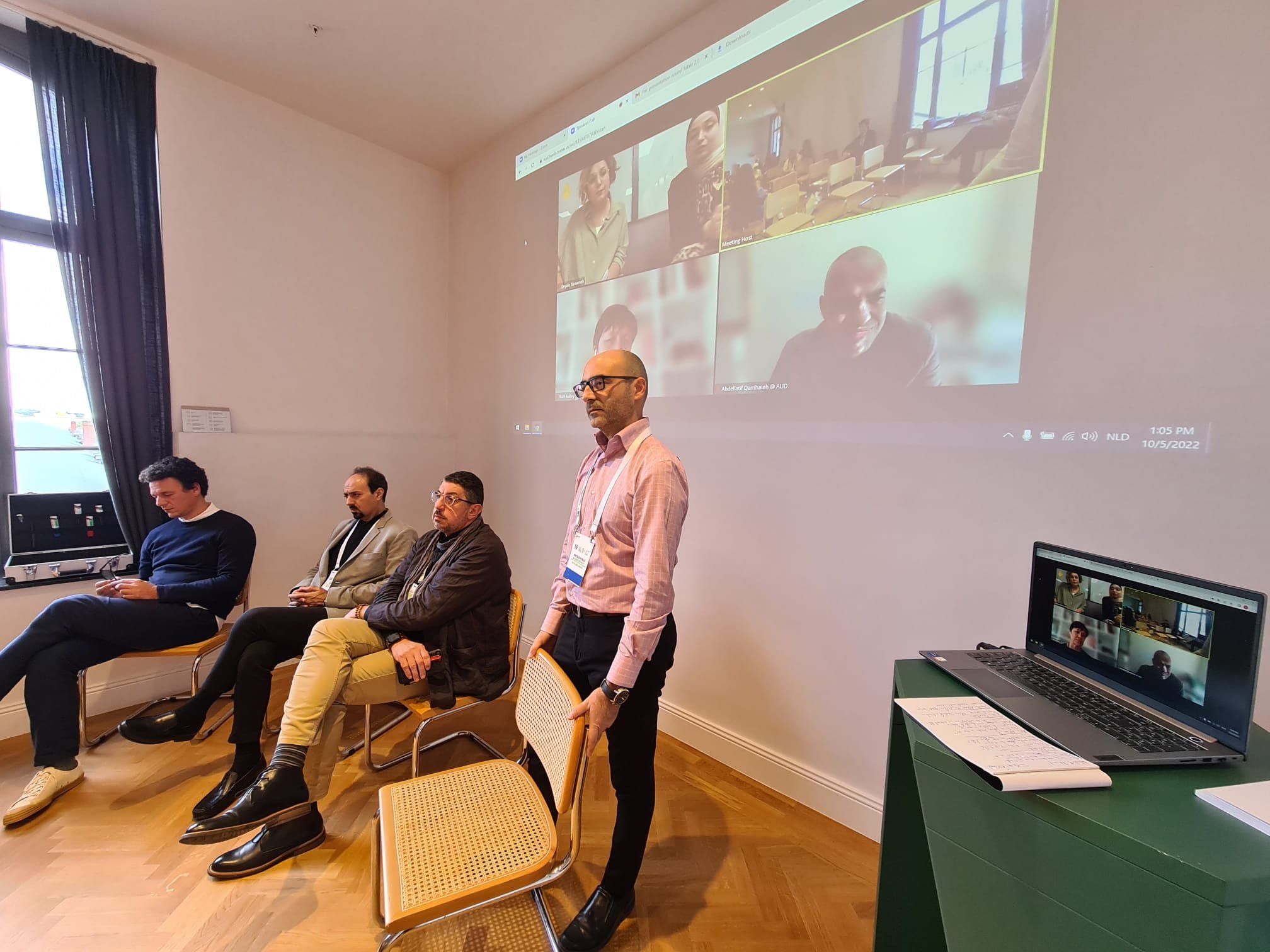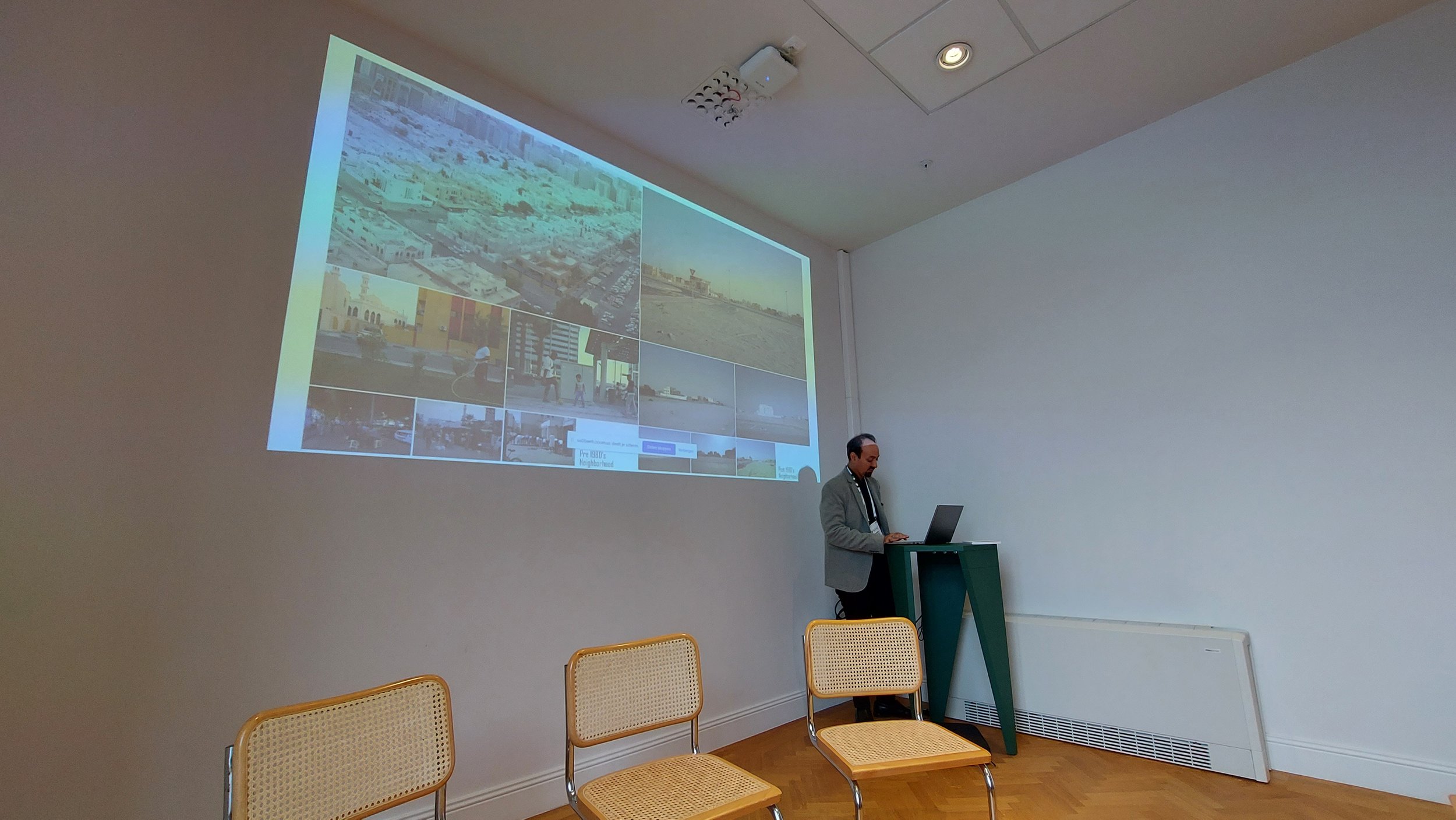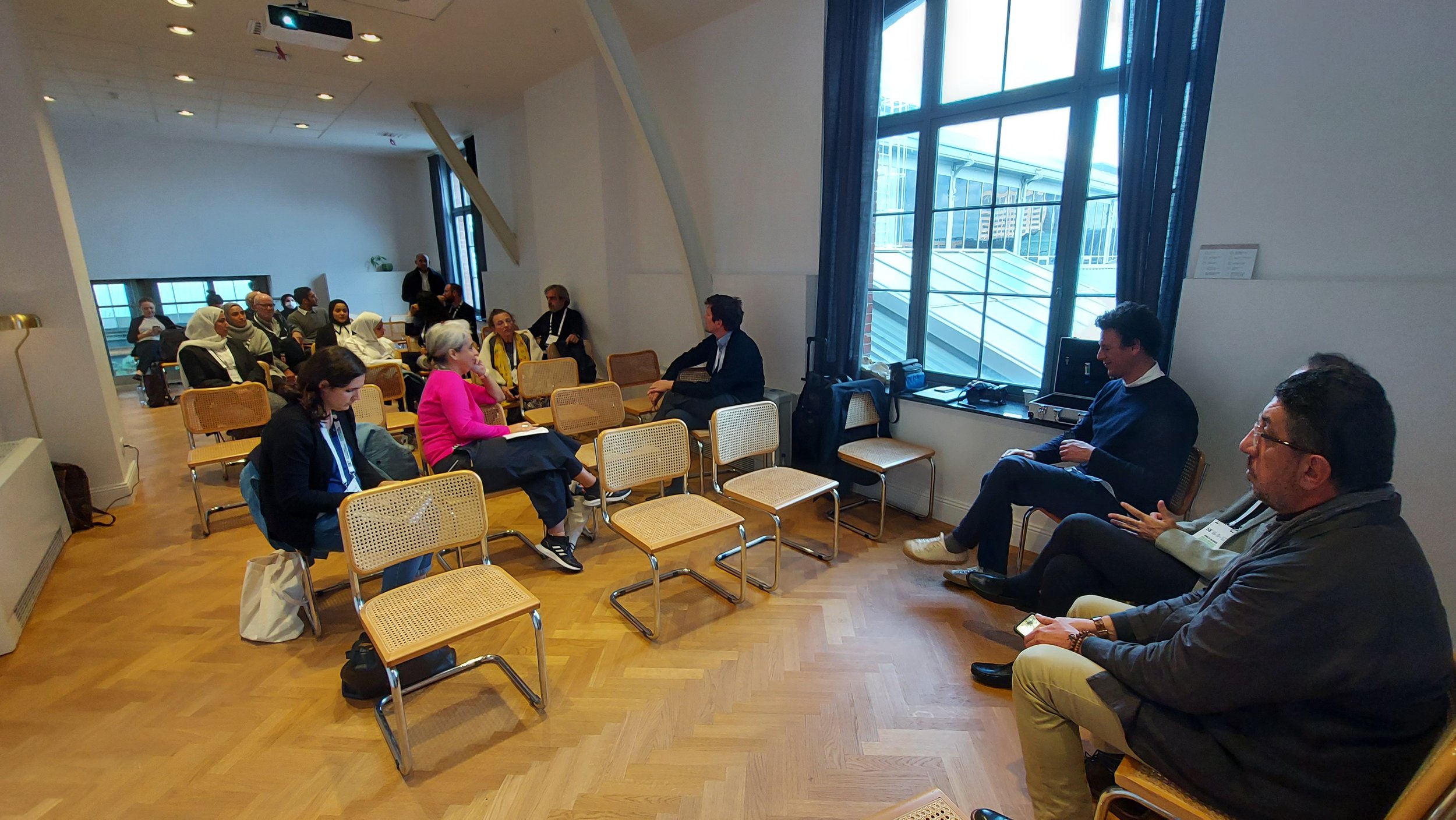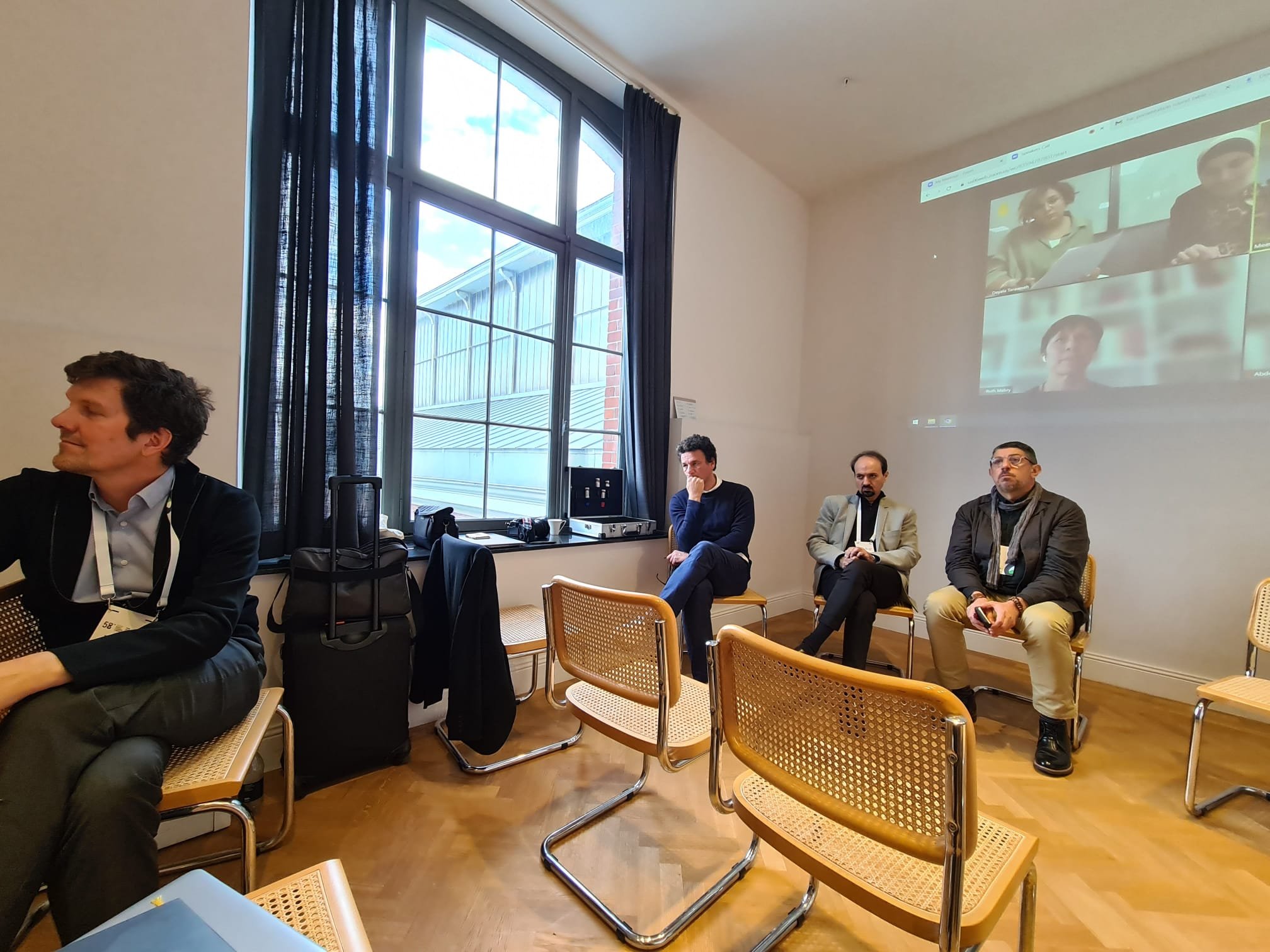Double participation at the 58th World Planning Congress of ISOCARP in Brussels, Belgium
My first visit in Belgium and Brussels was successful and fruitful. My participation at the 58th World Planning Congress of ISOCARP was consisted of two Special Sessions:
On Day 5, our research team with Alexandra Gomes, Clémence Montagne and Peter Schwinger were honored to host a Special Session entitled: “The role of streets as a barrier for urban health in Middle Eastern Cities”. It made an integral part of our Research Project called: “Roads as Tools for (Dis)connecting Cities and Neighbourhoods: a Socio-spatial Study of Abu Dhabi”, funded by LSE-Middle East and co-run by LSE-Cities and Abu Dhabi University (https://www.lse.ac.uk/middle-east-centre/research/collaboration-programme/2020-21/alexandra-gomes ).
After a brief introduction of our topic and work, seven distinguished guest speakers presented their related projects: Dr. Khaled Alawadi (Khalifa University, UAE) focused on the neglected element of the pedestrian alley (sikkah in Arabic) and its role in social functions. Dr. Abdellatif Qamhaieh (American University in Dubai) asked on how residents perceive urban life, as neighborhoods are still disconnected from the main mobility hubs. Professor Ali Alraouf (HBKU, Qatar) stressed on the missing perception of walking and that people will follow when proper networks are provided. Ruth Mabry and Dr. Gustavo de Siqueira (German University of Technology, Oman) presented findings from Muskat and the role of physical activity as a policy indicator. Finally, Dr. Deyala Tarawneh and Alaa Alwaked (University of Jordan, Jordan) presented alternative methods of biophilic urban design approached on re-activating public spaces in Amman.
A Q&A session followed the presentations. The questions posed were broad and interesting ones to generate a wider, vivid discussion with our audience of projects, ideas, notions and myths surrounding the urbanities that shape the overall Middle Eastern condition. Through this, we would like to thank both the guest presenters, the organizers and our audience for their dedication, deliberation and attention.
On Day 6, it was my turn to present as an invited speaker at a Session organized by Professor Ali Alraouf, entitled: “Cities and Global Events: A critical examination - shattered promises or fulfilled dreams?”. On my presentation (entitled: “The 2004 Olympic Games in Athens: Shifting thresholds between the social and the neoliberal”), I reiterated on how the Olympiad had chosen not to resolve fundamental issues of the social fabric of the city, leaving it unprotected to neoliberal sirens, a condition that backfired during the crisis of 2008. I would like to thank the Session organizer, Prof. Alraouf for inviting me.









